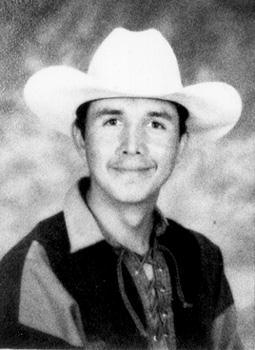Editorial:
Border
Fears
5/19/06
David Borden, Executive Director, [email protected] The big news item of the week is the president's new plan -- approved so far by the Senate -- to send thousands of National Guard troops to the border. "The United States is not going to militarize the southern border," the president and posted statements on the White House web site assure us. "National Guard units will assist the Border Patrol by operating surveillance systems, analyzing intelligence, installing fences and vehicle barriers, building patrol roads, and providing training," not in direct law enforcement activities. At least they say this now. But what will the inevitable "mission creep" lead to further down the road?
As a single-issue organization, DRCNet takes no position on the immigration issue itself. But the drug war and immigration wars (and now the terror war) intersect. We deplore the federal mandatory deportation policy for low-level drug offenders, many of whom have lived here most of their lives. We are concerned by the reinforcing effect that drug and border enforcement have had in upping the ante, so to speak, in terms of tactics -- on both sides, the government and drug traffickers alike. While drugs was not the focus of Bush's speech, it did get a mention: "We want the border to be open to trade and lawful immigration, and we want our borders shut to illegal immigrants, as well as criminals and drug dealers and terrorists." The drug war is affected by the recent developments in border policy, and vice versa. It's important to remember, however, that while the border is the current topic of conversation, the problems that arise when military and police organizations become too close are at play throughout the nation as a whole. Surplus military equipment, for example, can get handed down to police agencies, and is often overkill -- one sheriff had to be stopped from procuring a tank -- and the differences between the military mission and the police mission can make the confluence highly dangerous. Scholar Timothy Dunn addressed this topic in a 1996 book, "The Militarization of the US-Mexico Border, 1978-1992: Low Intensity Conflict Doctrine Comes Home." In an interview I conducted for this newsletter, Dunn pointed at training -- one of the Guard's border priorities enumerated this week by the president -- as particularly risky: "In training, they're allowed to teach everything from first aid and map reading and rifle marksmanship, which sounds pretty modest, to things like suspect interrogations and the use of pyrotechnics and booby traps -- you know, some really gruesome stuff that law enforcement has no business in the world getting involved with."A January 2005 raid in Niagara Falls, New York, stunned the community for its use of pyrotechnics, resulting in the burning and hospitalization of an innocent woman. Dunn also worried about interrogation practices: "[I]n suspect interrogations, law enforcement at least has to wave at the Constitution. Military, in their operations abroad, do not. And all the allegations that have been lodged about training of torturers, and so forth, at the military's School of the Americas at Ft. Benning, involve that kind of stuff, suspect interrogation."And raid planning: "... which is reminiscent of Waco, and all those kinds of things... [L]aw enforcement people have no business planning a raid to look like a military program, and the military certainly can't help plan a police raid, because that's not what they do."Not that any of this ever went away, even after the Hernandez killing -- the relationships the Army and Guard had with the Border Patrol and state and local agencies are still in place, Dunn told Drug War Chronicle last week. Direct military patrols at least have taken a decided back seat. But while the administration professes not to want to bring them back, I suspect that with 6,000 more troops on the scene the pull will be irresistible, and it's not clear how "not involved in direct law enforcement activities" may get interpreted over time. And if history is a guide, drug enforcement may well be the poison pill that dilutes such restraints for everything -- when the next rash of drug trade shootings breaks out just a few miles south or bleeding over on our soil, will the commander or governor or defense secretary or president have the political will to say no, we're not deploying the Guard and further militarizing the border because we said that's not what we were going to do? Reassuring words have been spoken about what the Guard initiative is and is not intended to mean. But one must ask, with Esequiel Hernandez nine years gone, is it all now starting again?
|

